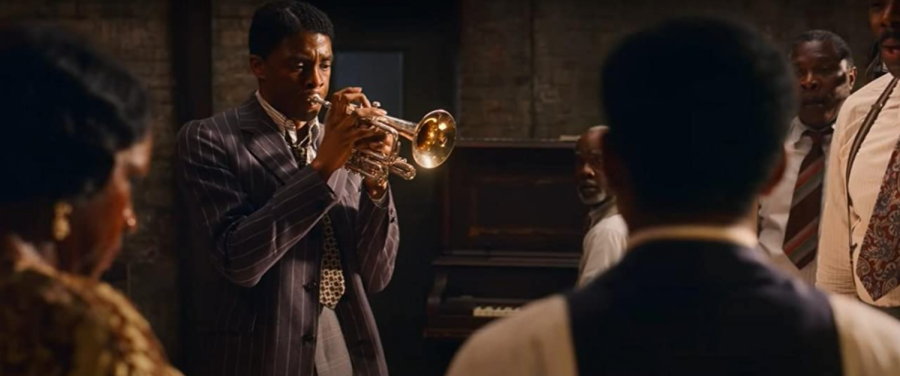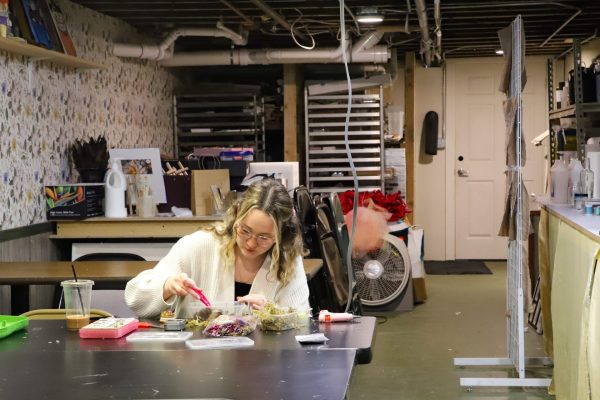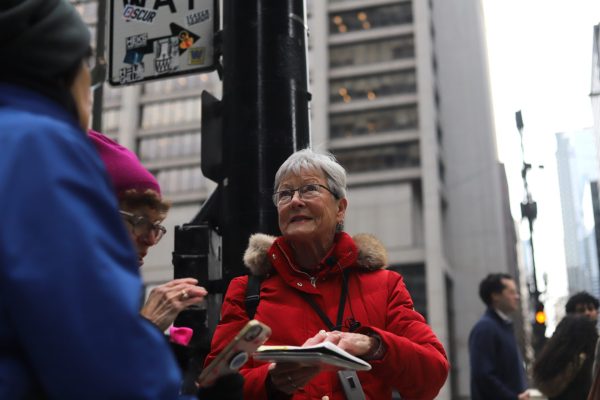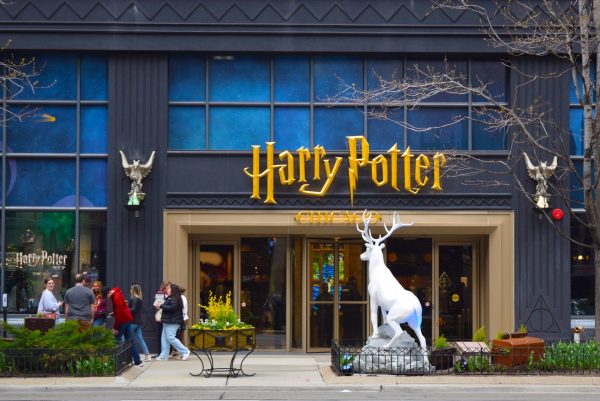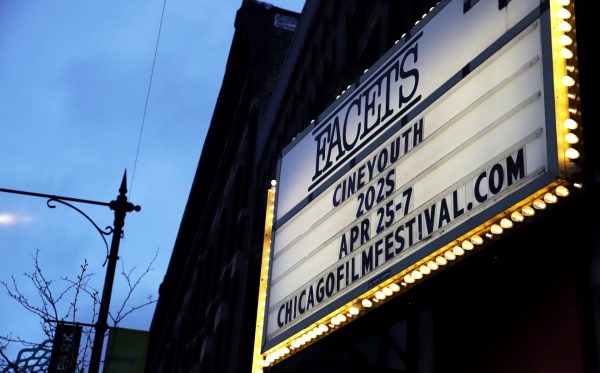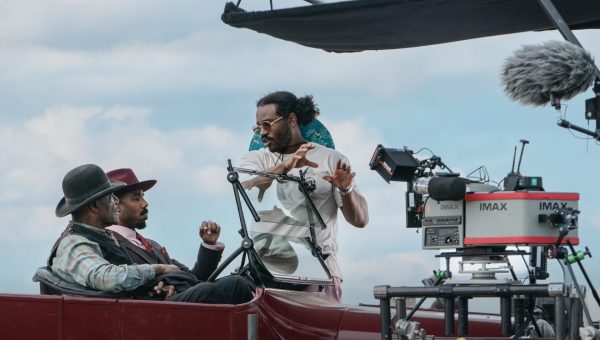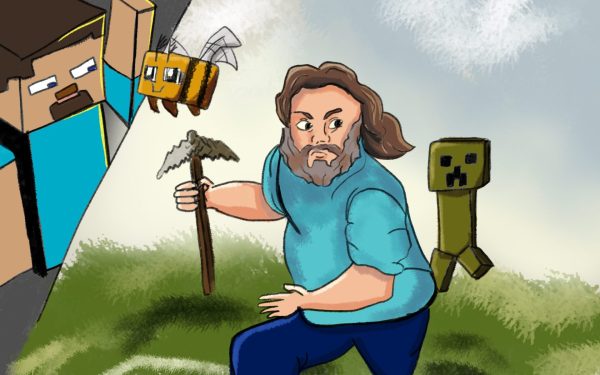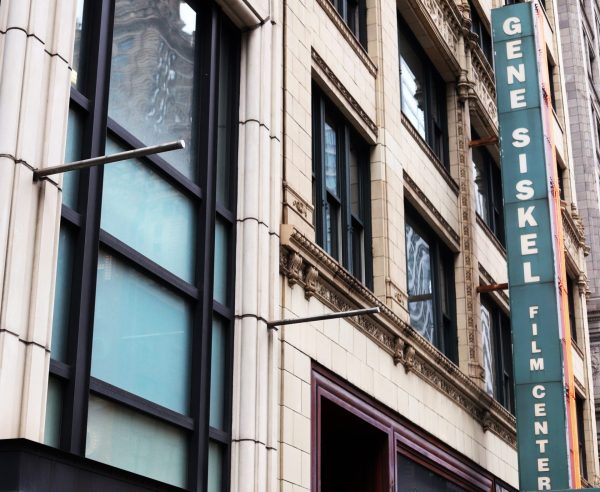REVIEW: Boseman and Davis are an intoxicating duo in ‘Ma Rainey’s Black Bottom’
Chadwick Boseman stars in his final role in “Ma Rainey’s Black Bottom.”
It’s impossible to have any sort of discussion about Netflix’s new film “Ma Rainey’s Black Bottom” without acknowledging the untimely death of Hollywood superstar Chadwick Boseman, whose turn as “Levee” will be his final credit.
Boseman, of course, is most well known for his role as the Black Panther in the Marvel Cinematic Universe, and although it seemed to be a role he was born to play, the franchise’s immense popularity often overshadowed some of his other, more gripping performances, making it easy to forget just how capable of an actor Boseman was.
“Ma Rainey’s Black Bottom,” though, is Boseman at his most potent — not just a masterclass in adapting plays for the screen, but also a worthy sendoff for a once-in-a-generation talent.
Based on the iconic August Wilson play of the same name, “Ma Rainey’s Black Bottom” follows a day in a 1927 Chicago recording studio, where jazz legend Ma Rainey (Viola Davis) is recording her latest set of songs. Among the band that’s been hired to play backup for her is Levee (Boseman), a young and ambitious trumpet player with the hopes of starting a band of his own and securing a record deal. As the day goes on tensions begin to rise between Ma, Levee and the record executives (Jeremy Shavos, Jonathan Coyne) at the studio, ultimately resulting in a violent and tragic conclusion.
As with many stage-to-screen adaptations, “Ma Rainey’s Black Bottom” feels like a play. There are very few attempts made here to widen the scope of the narrative, instead opting to keep a tight focus on each character, and building the world through set design and score in the brief glimpses of the city we get before we’re locked in the studio with Ma and Levee.
It is, for the most part, a narrative that takes place in one room (the studio), and as such thrives on its fast-paced dialogue full of wicked fast quips, interlaced with punches of Wilson’s signature acerbic wit and sociopolitical commentary. It’s by no means an easy script, and with so little fanfare to the story itself, the burden falls on the actors to elevate the film and do justice to a legend of stage — and boy, do they deliver.
Without fail, every member of the cast turns in an impressive performance. Boseman makes for a strong, solid lead — he oozes charisma in spades, and makes for a very believable musician. Perhaps slipping a little back into the energy he channeled for James Brown in “Get On Up,” Boseman’s natural dance and vocal ability do him quite a few favors here, and his easy smile is as disarming as it is deceptive of the film’s ending.
He carries Wilson’s dialogue with ease, landing all of the quips in perfect comedic timing and taking the dramatic monologues head on. When Levee murders Toledo in a fit of range at the film’s end, the sudden act of violence feels like a natural progression, thanks to the slowly bubbling rage that lurked below the surface of Boseman’s otherwise lighthearted performance.
Boseman isn’t the only member of the band, though, and many of his most memorable lines come when he’s playing off of the rest of the band: Michael Potts’ Slow Drag and Colman Domingo’s Cutler are strong performances, certainly, but overshadowed by Glynn Turman’s Toledo — the older and wiser figure of the four. It’s Toledo who butts heads most frequently with Levee (and how, of course, meets an untimely demise at his hand), but he also acts as the voice of reason in discussions with Ma Rainey and her associates.
The aforementioned associates are the young, beautiful Dussie Mae (Taylour Paige), whose character is likely a nod to Ma Rainey’s real-life bisexuality. Dussie spends most of her scenes flitting around the room and flirting with anyone she can get her hands on — most frequently Ma, but she also has a quick tryst with Levee in between recording sessions. Accompanying the two women is Ma Rainey’s nephew Sylvester (Dusan Brown), a young man who has been hired to deliver the spoken intro to one of Ma’s records, but who (as it’s revealed to the audience in the film’s funniest scene) has a crippling stutter.
Then, of course, there’s Ma herself. Though Levee may be the story’s protagonist, when Ma waltzes on screen, it’s her film, without question. If she’s in a room, you can’t take your eyes off of her — her presence commands attention and demands to be seen. Davis brings an incredible physicality to the role (and believably passes off the dubbed-over vocals), and while she may not have as much screen time as a few other players, she wrings every possible ounce of drama from the time she does have on screen.
Outside of the performance, Ma Rainey as a character herself demands respect — refusing to be paid anything less than her due. Her iron will is as aspirational as it is intimidating, which is what makes her such a formidable figure to center a story around.
Though the cast shines brightest in a film like this, everything from the production design to the score to the costumes are designed to build the ’20s Chicago whenever we can get glimpses of it. Ma Rainey’s makeup runs down her face under waves of sweat, and by the end of the film she almost looks like a clown, but it’s the kind of haunting image (almost evocative of Jim Crow) that will likely nab the film a number of production design-related Oscar nominations when awards season rolls around.
With a cast that can’t put a foot wrong and a source material provided by one of the most iconic playwrights of the 20th century, it’s nearly impossible to find fault with “Ma Rainey’s Black Bottom” — a stunning final turn for Chadwick Boseman.


